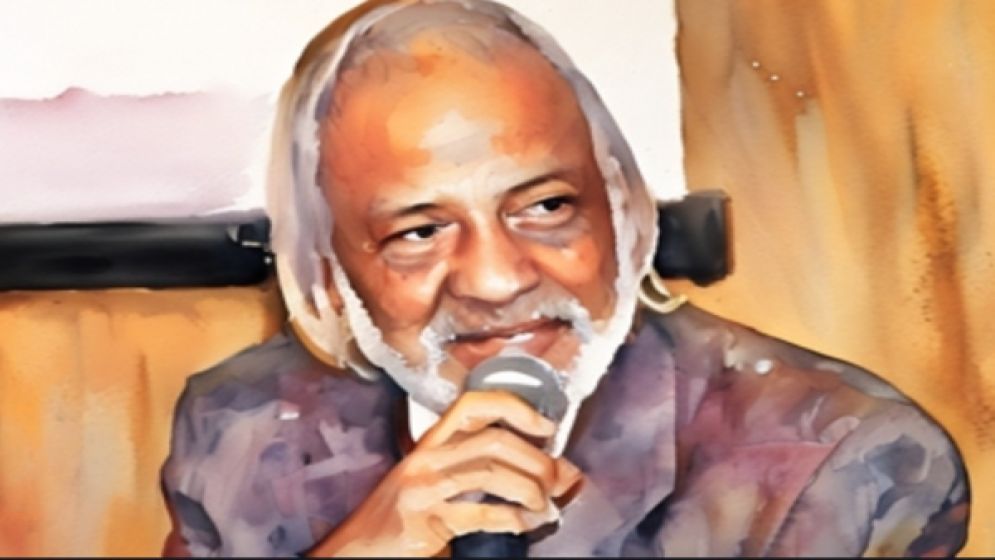“India’s support for Sheikh Hasina was a grave mistake,”: Dr. Moyeen Khan

Bangladesh Nationalist Party (BNP) stalwart Dr. Abdul Moyeen Khan pulls no punches as he dissects Bangladesh's political crisis, the nation's intricate relationship with India, and the newly established interim government in a candid conversation with Bangla Outlook.
During an overcast August afternoon, Dr. Khan, renowned for his astute political analysis, painted a grim picture of the past 15 years under Sheikh Hasina's rule and criticized the government's authoritarian tendencies, highlighting the suppression of dissent and the targeting of anyone who dared speak out, regardless of their social standing or age.
The recent student-led movement, Dr. Khan believed, has been instrumental in bringing about change in Bangladesh. He underscored the sacrifices made by the students, with hundreds killed and thousands injured, emphasizing their role in triggering a shift in the political landscape.
Dr. Khan described the cumulative frustration of the past 15 years of Awami League rule as reaching a boiling point, with the student movement providing the final spark. This "flash flood," as he calls it, has swept away Sheikh Hasina's regime, leaving Bangladesh at a critical juncture.
When asked about the newly established interim government led by Dr. Yunus, Dr. Khan expressed optimism about its potential to restore stability. "We have confidence in this government. If the people of Bangladesh did not trust it, it would never have come to power in the first place. That's the reality," he said.
He cited the return to normalcy in Dhaka as evidence of the interim government's growing acceptance. "A strong AL government was overtaken by a wave of change, and now, within a few days, normalcy has resumed in Dhaka—traffic is moving, and the country is stabilizing."
The discussion then shifted to India’s role in Bangladesh’s affairs, a topic on which Dr. Khan was particularly outspoken. He refuted the idea that the BNP is anti-India, despite frequent criticism of Indian policies at the grassroots level.
"The anti-India sentiment you observe is actually directed at the Hasina government, which became associated with India due to India's unconditional support for Hasina's autocratic actions and repeated disregard for free and fair elections.
The Indian government has unconditionally backed the Hasina administration. How can it justify supporting a regime known for its brutality?" Dr. Khan questioned.
He went on to recognize India's historical support for Bangladesh during the liberation war but criticized its recent stance. "India has been a true friend, aiding us during our fight for independence in 1971. However, it's crucial for both the people and the government of India to grasp the sentiments of the Bangladeshi people.
The major error made by Indian leaders, including politicians and South Block policy makers, was their support for only one party. When you align yourself with just one government or party, the relationship can end abruptly if that government falls."
Dr. Khan also addressed accusations that BNP supporters had perpetrated violence against Awami League leaders during recent unrest.
He dismissed these allegations, saying, "You've been here for a week—have you witnessed a single incident of violence against minorities? Can you name one? Indians need to understand the mindset of Bangladeshis. Once they do, they will see that Bengalis are among the friendliest people in the world."
The discussion shifted towards Sheikh Hasina's accusations of external forces, specifically the U.S., being responsible for her government's downfall.
Dr. Khan dismissed these claims as baseless and repetitive, pointing out her history of making similar accusations after previous election losses. He questioned why she didn't present evidence during her time in power and criticized her approach as childish.
When asked about potential actions against Sheikh Hasina if the BNP came to power, Dr. Khan emphasized that the BNP doesn't believe in revenge politics. He highlighted the Awami League's extensive use of fictitious cases against the opposition, contrasting it with the BNP's approach during their time in government.
Regarding the future, Dr. Khan acknowledged that the interim government might need to extend its tenure to implement necessary reforms for fair elections and governance in Bangladesh.
He said, while Bangladesh's constitution originally limited caretaker governments to 90 days, the current situation might necessitate a longer duration.
“The Hasina government's systematic dismantling of key institutions, including the civil service, judiciary, and election commission, requires extensive repair. The incoming government aims to rebuild these institutions while simultaneously preparing for free and fair elections,” he said.
“The overarching goal of this interim government is to steer the country away from autocracy and back towards a democratic system,” he added.
—-

